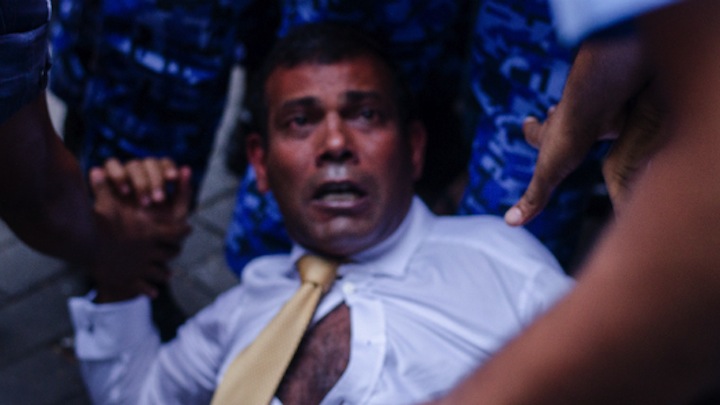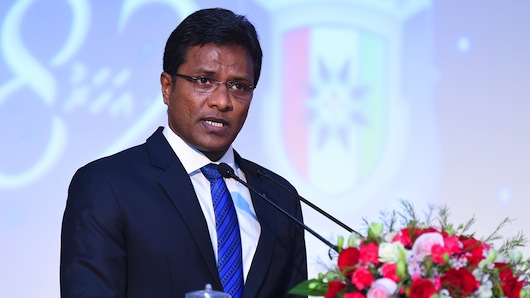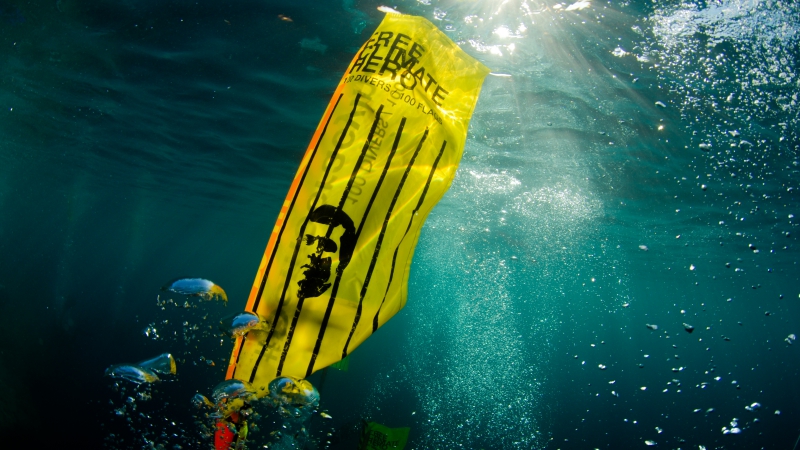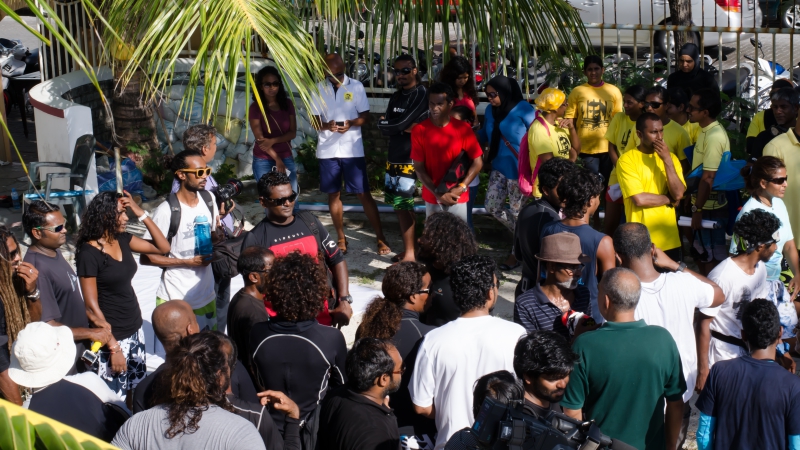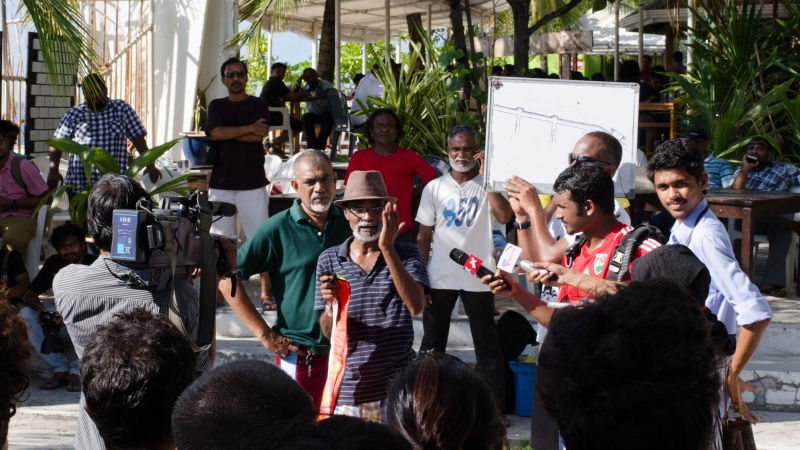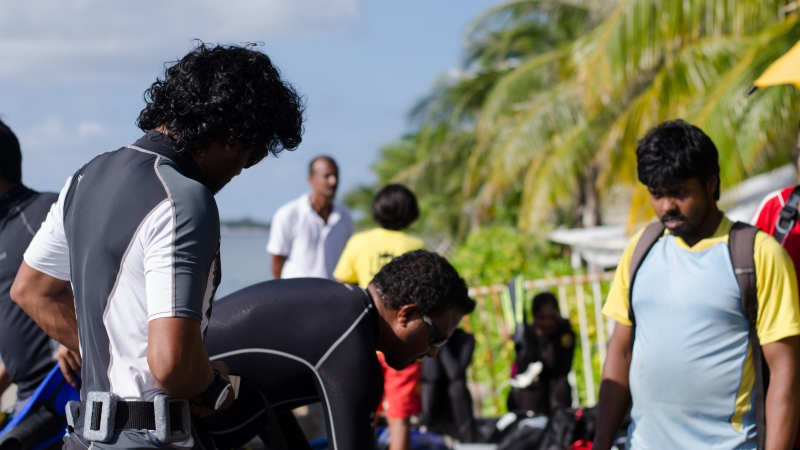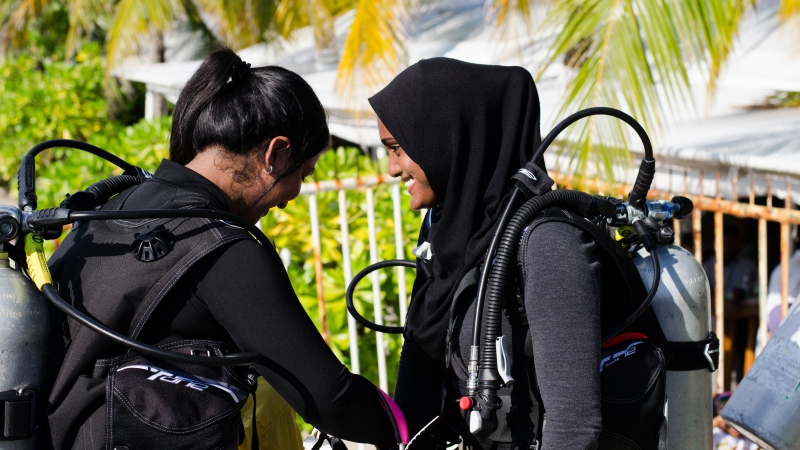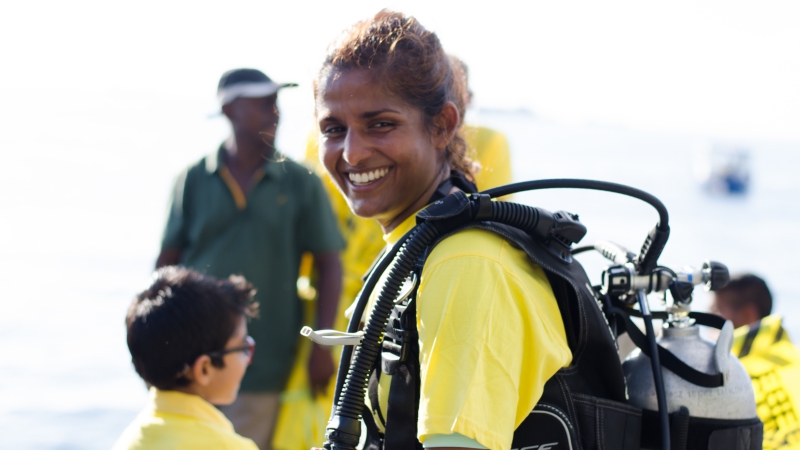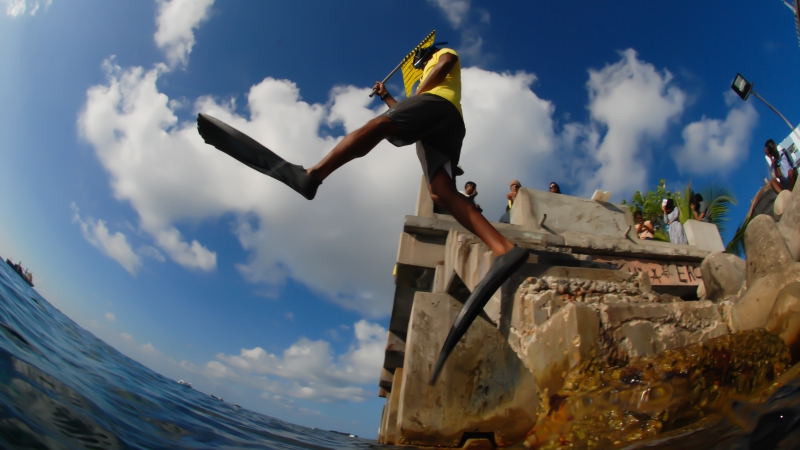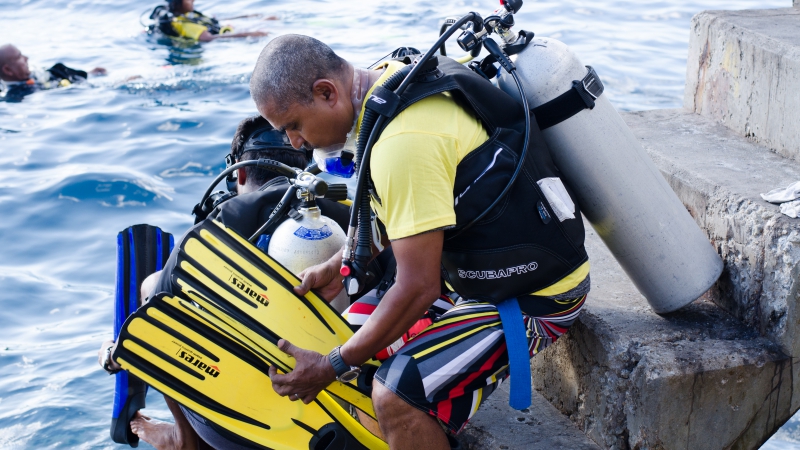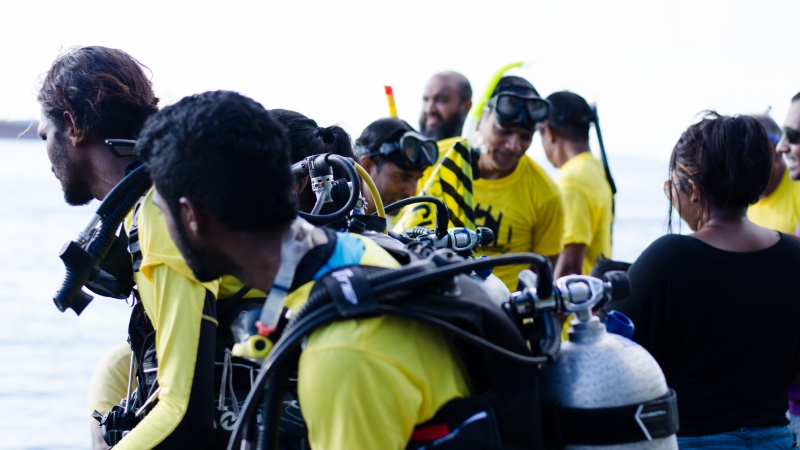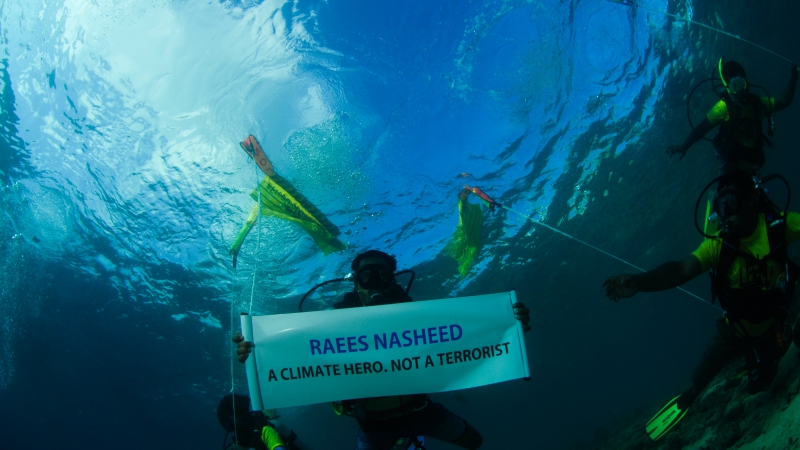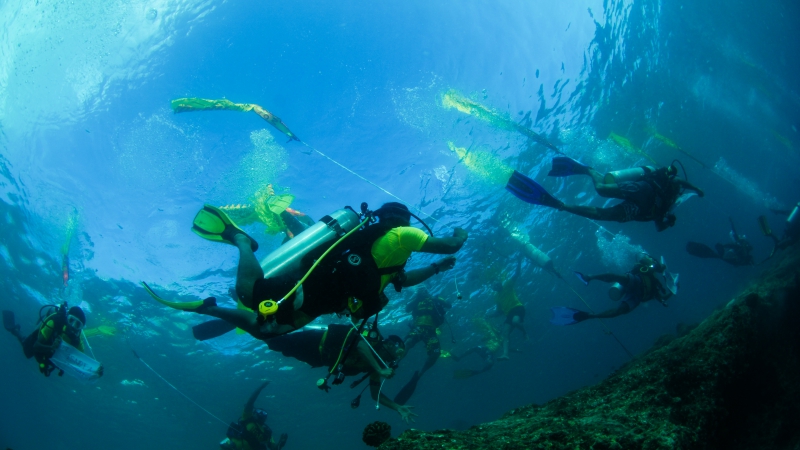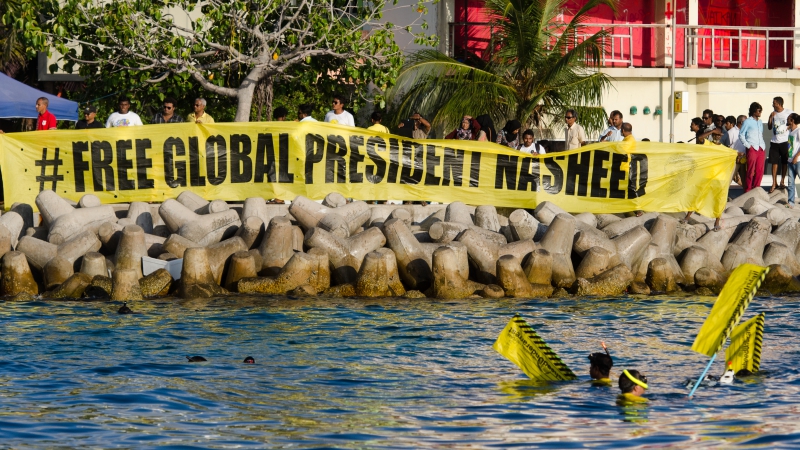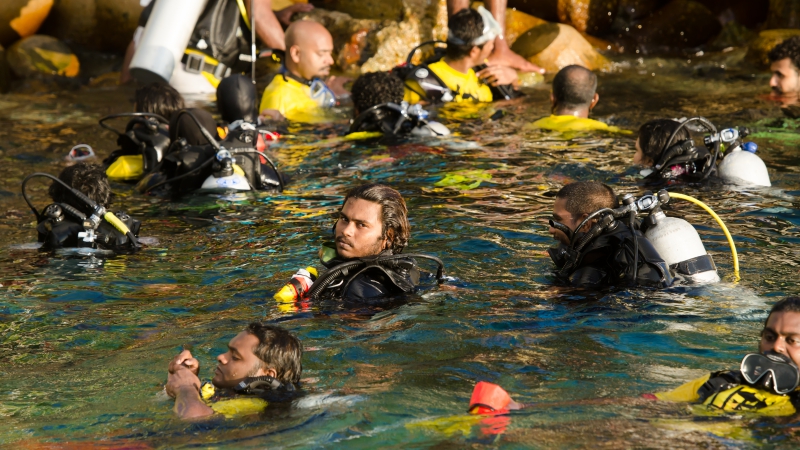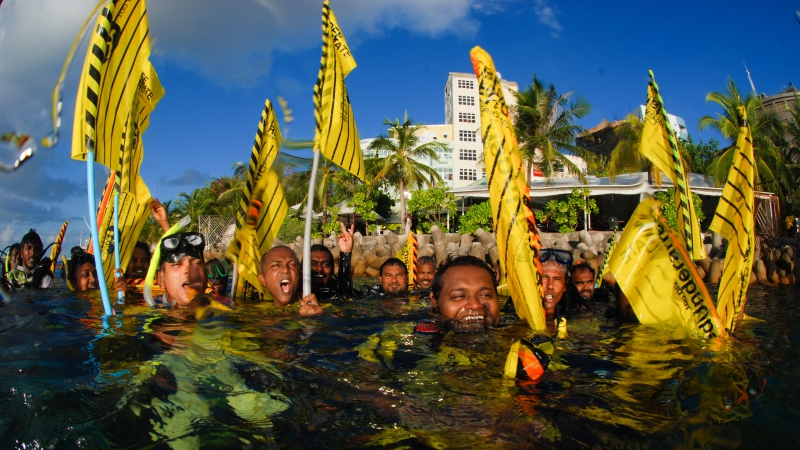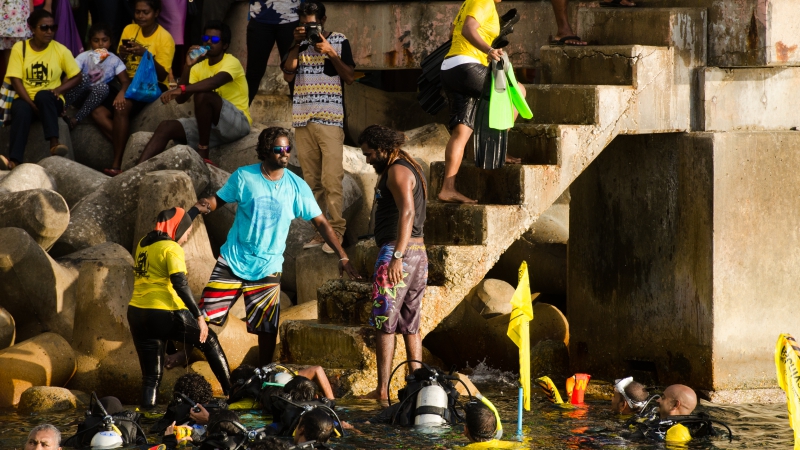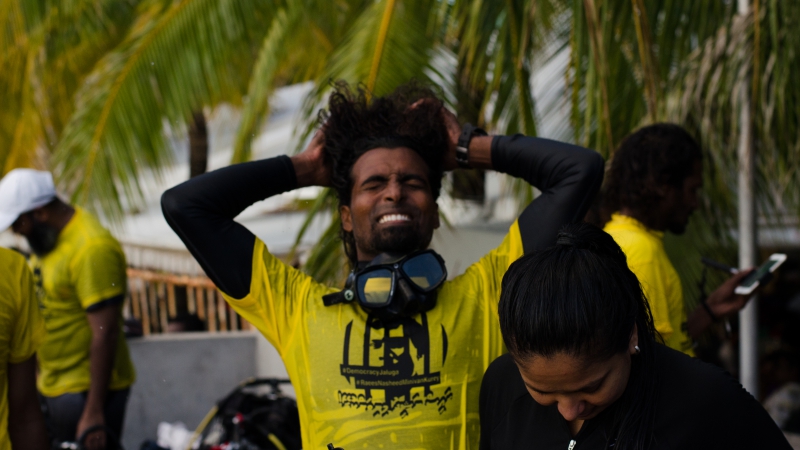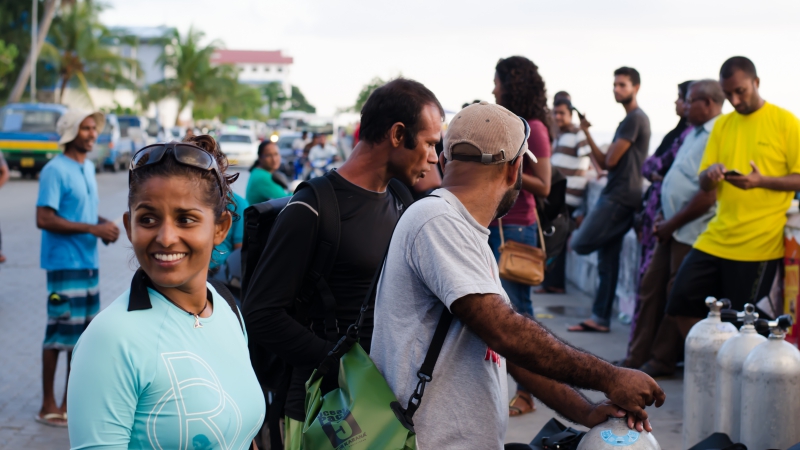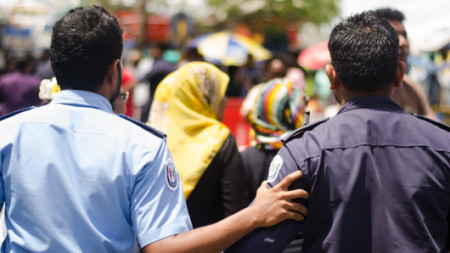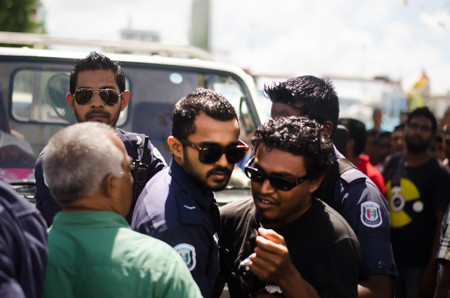The police watchdog has determined that police officers used proportionate force and acted legally when they escorted former President Mohamed Nasheed to the criminal court on February 23.
Nasheed appeared for the first hearing of his terrorism trial with his arms in a makeshift sling. Police officers had manhandled and dragged the opposition leader inside the court building when he stopped to speak with journalists.
However, citing testimony from police officers and video footage obtained for its inquiry, the Police Integrity Commission (PIC) said “Nasheed stopped near the gate of the justice building and refused police orders to go into the building.”
Minivan News journalists saw Nasheed repeatedly asking the the police to let him walk into the court, but police officers dragged him in by force, ripping his shirt open in the process.
The PIC launched an inquiry after the former president submitted a complaint alleging police brutality.
Nasheed was subsequently sentenced to 13 years in prison over terrorism charges related to the detention of a judge during his tenure. Foreign governments, the UN, and international human rights organisations widely criticised the 19-day trial over its apparent lack of due process.
The PIC said in a press statement today that police officers acted in accordance with regulations and used “force necessary in the situation.”
The office of former President Nasheed has slammed the PIC’s statement, noting that the oversight body had not sought statements from Nasheed or journalists who witnessed the incident.
Nasheed’s office accused the commission of defending police for political reasons, calling on the watchdog to act independently and to conduct impartial investigations into complaints of police misconduct.
Meanwhile, Nasheed was brought to the Malé from Maafushi prison this afternoon for a doctor’s appointment at the Senahiya military hospital.
President Nasheed inside the Military Hospitol day begins its president Yamins Birthday. pic.twitter.com/UGsTNToKRP
— Mohamed Naseem (@Redeynaseem) May 21, 2015
“He was brought for medical examination several days after doctors in Maafushi Health Centre recommended for him to be examined by medical specialists,” read a separate statement from Nasheed’s office.
Doctors at the health centre had recommended on May 7 that Nasheed should have an MRI and consult a dentist, but the authorities had denied requests from his family and lawyers to provide medical care, the statement added.
The former president’s office noted that “Senahiya is not a tertiary hospital and the authorities have not given any reason why he is being treated at a health clinic and not a well equipped hospital in the Maldives.”
Beloved president @MohamedNasheed brought for medical. The bravest man i have ever seen. #Respect pic.twitter.com/KLFFFyBxLx
— Hamna Waheed (@HamWahydd) May 21, 2015
Hundreds of supporters gathered near the Senehiya hospital this afternoon, hoping to catch a glimpse of the former president who has not been seen since he was sentenced to 13 years in jail on March 13.
Police arrested Maldivian Democratic Party (MDP) MP Eva Abdulla’s husband Ahmed Shahid (Saabe) near the hospital for allegedly disobeying orders. He was released by the court within hours.
Saabe charged with disobedience to police order. Was arrested while standing way behind police line. pic.twitter.com/5e2X3MrCSL
— Eva Abdulla (@evattey) May 21, 2015
#FreeSaabe NOW!!! pic.twitter.com/vaGFOCrVYS
— Luke (@Lucasjalyl) May 21, 2015
Saabe was pinpointed and taken today. What’s to stop them from doing that to you tomorrow?
— Shahi Ghani (@shahi92) May 21, 2015
Minutes before @saabeas was arrested. Calmly standing. Does he look like a threat? pic.twitter.com/OkbLPMyFyI Release #Saabe @IPUparliament
— Zuroo (@zuroo) May 21, 2015
MP @evattey‘s husband @saabeas indiscriminately arrested. He was far from those gathered to see Prez Nasheed at Senehiya. @IPUparliament
— Shauna Aminath (@anuahsa) May 21, 2015
#Maldives Opp MDP MP Eva’s husband n Campaign Committee member Ahmed Shahid (Saabe) arrested near Senahiya Hospital pic.twitter.com/Z3QnjKIj5F
— Ahmed Abdullah (@AhmedMascot) May 21, 2015
